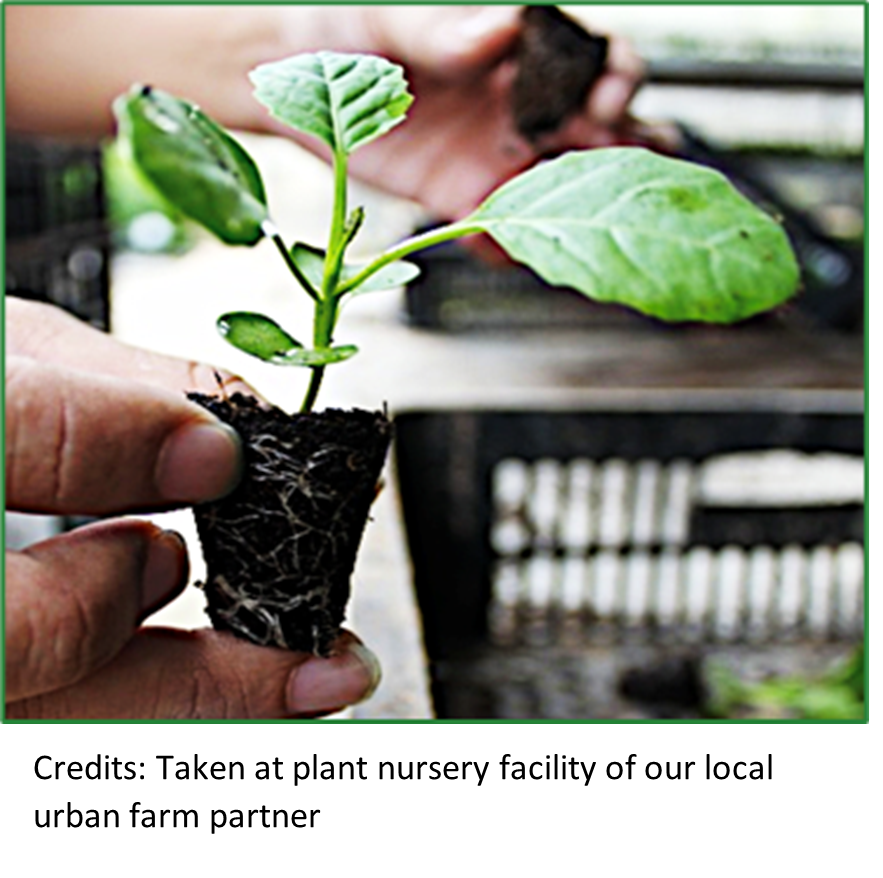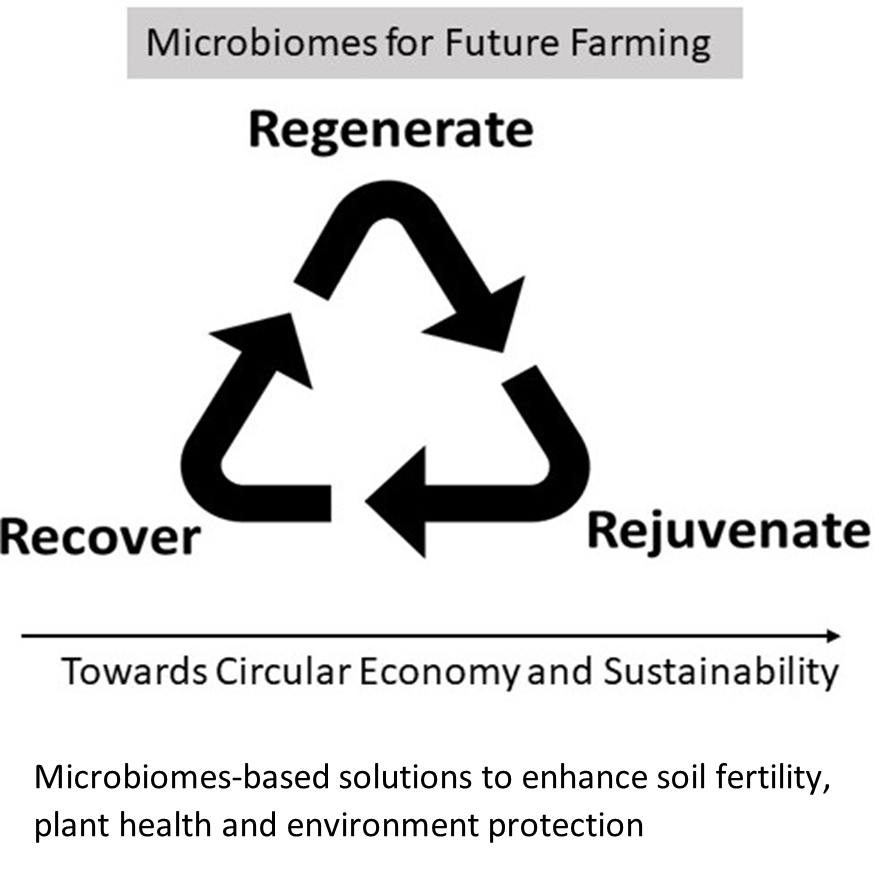Future of Farming – Microbiome Solutions for Green Environment
“To forget how to dig the earth and to tend the soil is to forget ourselves.” – Mahatma Gandhi
 Our environment is undergoing enormous shift with dwindling natural resources, impending climatic adversities and rising human population. Rapid globalization with tremendous technological advancements has further fuelled this raging battle between environment, food, and human civilization with a compounding effect on resource availability and its distribution. The wave of high-tech revolution has made an everlasting impact on our food, the way we grow and consume them. While this has enhanced our perception and knowledge about global world cuisines, this is coming at a huge cost to our environment.
Our environment is undergoing enormous shift with dwindling natural resources, impending climatic adversities and rising human population. Rapid globalization with tremendous technological advancements has further fuelled this raging battle between environment, food, and human civilization with a compounding effect on resource availability and its distribution. The wave of high-tech revolution has made an everlasting impact on our food, the way we grow and consume them. While this has enhanced our perception and knowledge about global world cuisines, this is coming at a huge cost to our environment.
There has been a non-stop race to produce more food to meet the world’s growing demand. To achieve this, farming practices rely heavily on chemical fertilizers to increase the crop yield and routinely administer chemicals and pesticides to keep insects and pests at bay. These chemicals could diffuse in to the surrounding environment. Such practices not only impact soil health and integrity but also have long term detrimental impact on our aquatic and atmospheric ecosystems.


Microbes, which are known to be associated with the plant/soil biota, can catalyse the recovery, regeneration, and rejuvenation of our environment. Microbes have co-evolved with plants and their immediate environment for billions of years. Microbiomes, aggregate of diverse microbial communities, share fostering and nurturing relationship with the plants and provide them with nourishment and bountiful life. These natural associations and interactions impart extraordinary nutritional and protective benefits to plants reducing the over reliance on external chemical inputs. In turn, they naturally fertilize the soil. This cohesive and dynamic microbiomes-plants-environment relationship form a stable and self-sustaining ecosystem.
Although our understanding about microbiomes and their ability to protect environment and promote plant growth is advancing, most of this knowledge comes from non-crop plants or model species in controlled environments. Lately, microbiomes have garnered increasing interests among diverse stakeholders to collaboratively create lucrative bio-based solutions that paves the way for environmentally friendly crop production regimes. To achieve this goal, in-depth understanding of crop-specific microbiomes is important. Cataloguing crop-specific microbial genomes is an important research priority that serve as the first step to achieving this goal. Integrated and cross-disciplinary research initiatives will be required to translate the knowledge from genomes to solutions and regenerative farming management practices.

Associate Professor Sanjay SWARUP from the Department of Biological Sciences, Deputy Director, NUS Environmental Research Institute who is also affiliated to Singapore Centre for Environmental Life Sciences Engineering (SCELSE) are among the pioneers in this initiative.
He leads a multi-disciplinary study in collaboration with local urban farm that aim to fill the knowledge gap by creating valuable resource of microbial genomes from urban farmed vegetables, integrate with optimised and efficient agrotechnologies leading to enhanced crop productivity with minimal environmental externalities.
His research team has reconstructed nearly a thousand microbial genomes from green leafy vegetables commonly consumed in Singapore to improve the quality of urban farmed crops and reduce chemical inputs. This study is timely and unique given that green leafy vegetables are suitable for a variety of farming formats that are being adopted by diverse stakeholders with the goal of Singapore’s “30 by 30” whereby one-third of the nation’s food supply is to be grown locally by 2030. The wealth of information generated from this resource will aid in cultivating high quality green leafy vegetables with environment friendly technologies.
Article contributed by Dr. Shruti Pavagadhi
For more information, please contact:
Associate Professor Sanjay Swarup
E-mail: sanjay@nus.edu.sg
Suggested Reading:
- Bandla, A., Pavagadhi, S., Sudarshan, A., Poh, MCH. (2020). 910 metagenome-assembled genomes from the phytobiomes of three urban-farmed leafy Asian greens. Scientific Data,7 (1), 278.
- Bandla, A., Pavagadhi, S., & Swarup, S. (2020). Harnessing Soil Microbiomes for Creating Healthy and Functional Urban Landscapes. Soil Analysis: Recent Trends and Applications, 325–338.
- Bandla, A., Saxena, G., Mishra, R., & Swarup, S. (2019). A Framework to Address the Food, Energy and Water Nexus among Indian Megacities and Their Rapidly Expanding Peripheries. Dialogue – Science. Scientists. Society, Indian Academy of Sciences.10.29195/DSSS.02.01.0019.
- Pavagadhi, S., & Swarup, S. (2019). Research Article: Advances in Science. A special issue on Agri-food sciences: From the farm to the plate. Advances in Science, 24(1)
